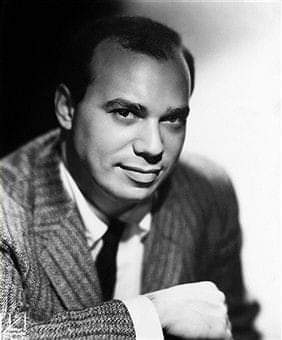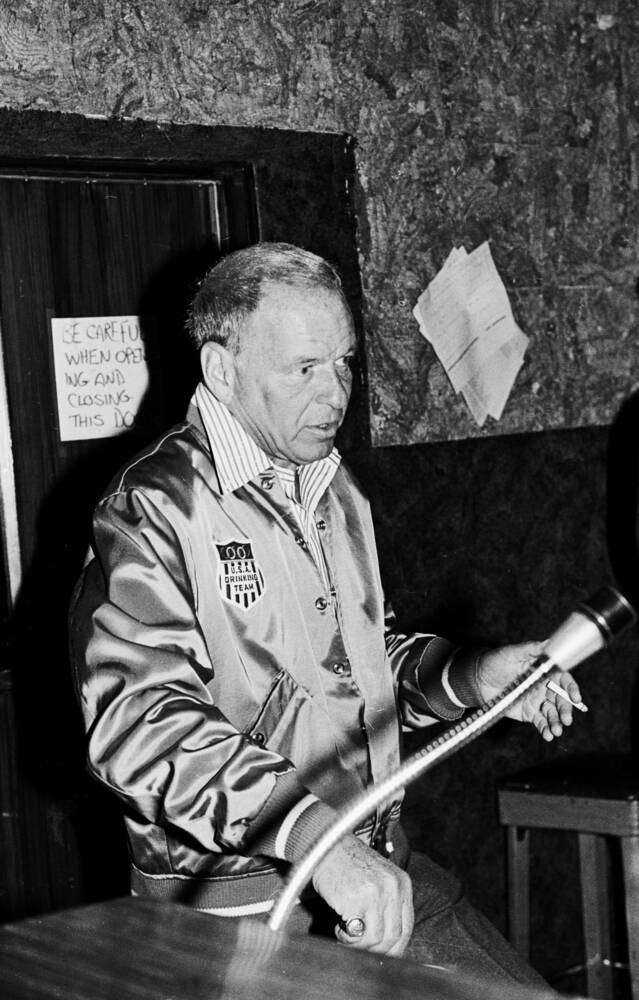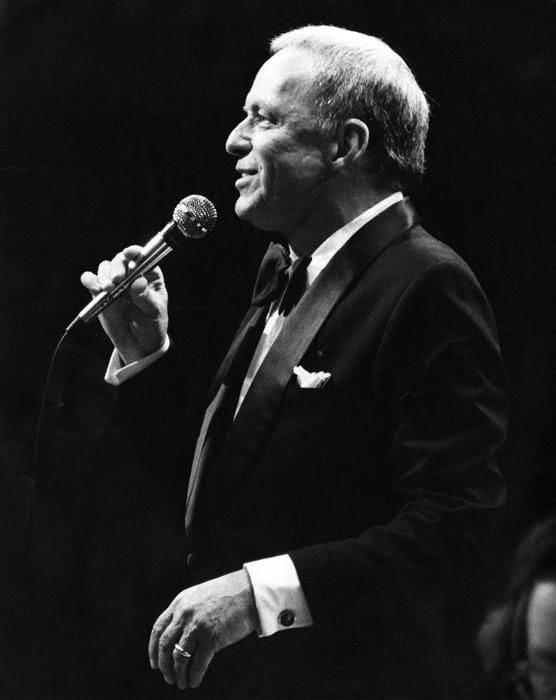
DON COSTA
On June 9, 1925, Don Costa, the versatile arranger who helped launch great artistic careers and was responsible for Sinatra’s most contemporary sound from the late 1960s until Costa’s untimely death in 1983, was born in Boston.
Costa left school at age fifteen to play guitar on a local radio station, and shortly after moved to New York to work as a studio musician. In the early 1950s he began working for ABC-Paramount Records and met Paul Anka, whom he helped launch his career.
As an arranger he enjoyed a number one hit in 1958 with Lloyd Price‘s “Stagger Lee“, and a third chart hit with Trini López‘s “If I Had A Hammer” in the summer of 1963. Costa’s work also contributed to the success of Little Anthony & The Imperials, Barbra Streisand, Perry Como, Dean Martin and The Osmonds, among many others.
He also released some albums under his own name. In 1959 he signed with the United Artists record label, and released an instrumental version of the Johnny Cash classic “I Walk The Line” (Which for some strange reason was renamed “I’ll Walk The Line“!). The chart performance was quite poor, and it failed to rise above number 59 in Billboard magazine. In 1960 he achieved greater commercial success with the songs from the films “The Unforgiven” and “Never On Sunday“, something that probably caught the attention of Frank Sinatra, who sensed that this young musician could help him find a new and attractive sound for the decade that had just begun. And Costa’s debut with Frank could not be better: nothing less than the extraordinary “Sinatra & Strings“, which brought a fresh and sumptuous character to a well-chosen selection of standards from the Great American Songbook.
Curiously, Costa’s production with Sinatra did not have relevant continuity until the 1968 LP “Cycles“, but from that moment on, the arranger became Frank’s trusted man in the studio and often in live concerts, conducting the orchestras and making new arrangements to rejuvenate old classics.
Although Nelson Riddle is the name most associated with Sinatra when it comes to the topic of orchestral arrangements, it is worth highlighting the importance of Don Costa in Frank’s career, since he knew how to find the most suitable sound for the singer. in a difficult cultural context. There is no doubt in my mind that Sinatra’s recording output would have been more prolific in the 1980s and 1990s if Costa had been alive.
If you want to visit more articles about the life of Frank Sinatra enter the following Sinatra Radio 24h link: https://sinatraradio24h.com/category/articles/
We remind you that you can also listen to Sinatra Radio 24 hours on your mobile phone by downloading our free applications for Android in the Play Store https://play.google.com/store/apps/details?id=sinatra.radio24h








